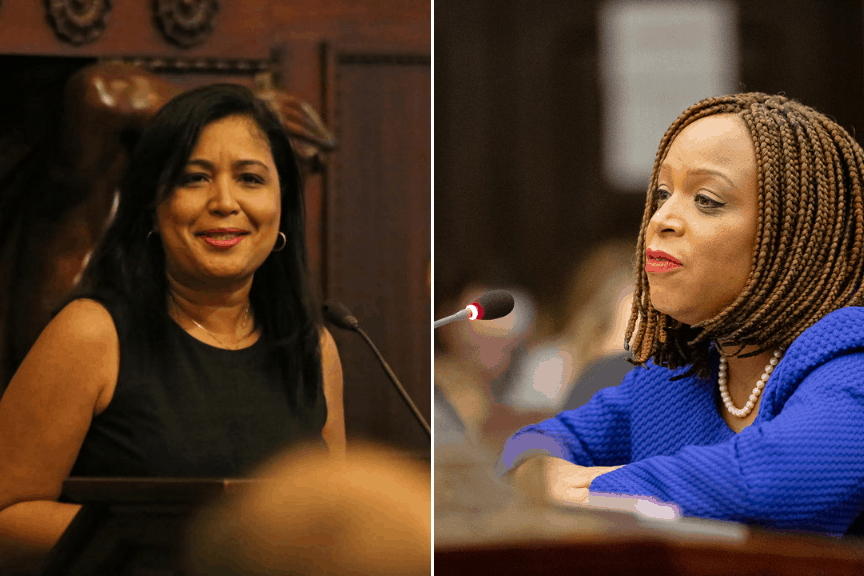Goal of legislation is to generate more affordable housing in areas of the 3rd and 7th Districts that are especially vulnerable to development pressures
PHILADELPHIA – City Councilmembers Jamie Gauthier and María Quiñones Sánchez today introduced the Mixed Income Neighborhoods Overlay Bill, which aims to require that affordable housing be part of new large development projects. This bill will apply to select tracts of the 3rd and 7th Districts that are seeing increased market pressures where Philadelphia residents will be especially vulnerable to displacement without additional policy interventions.
“Mandatory inclusionary zoning is a big piece of the puzzle when we talk about equitable development and giving Philadelphians equal access to amenity-rich neighborhoods—both of which are core components of my agenda,” said Councilmember Gauthier. “The mixed income housing bonus has been successful—but the time has come to see where it can be taken further, and how we can ensure affordable units are available in neighborhoods where new developments are built. I want to thank Councilmember Sánchez for her partnership, and look forward to engaging with our communities around these issues.”
The bill would require 20 percent affordability in any new development with ten or more residential units within the overlay boundaries. Ten percent of total units would have to be on the property itself, while the other ten percent could either be on site, within a half mile of the new building, or replaced by a payment to the Housing Trust Fund. The on-site units must be affordable for rental households earning up to 40 percent area median income (AMI), and for owner-occupied households earning up to 60 percent of AMI. Property owners would be entitled to additional development rights, such as additional building height or reduced parking requirements. These rights vary depending on the base zoning of the property.
“Diverse, mixed income neighborhoods need strong public policy that incentivizes and promotes equitable development,” said Councilmember Sánchez.
The Philadelphia Zoning Code currently has a program that incentivizes property owners to build affordable housing, but it is optional and does not require new units to be built in the neighborhoods where development is occurring. Both Councilmembers see the Housing Trust Fund as a vital resource for creating housing security here in Philadelphia, but they recognize that there is a significant opportunity for on-site affordability that presents itself with regard to new development projects, and that this should not be taken for granted, especially in neighborhoods that are experiencing heavy development pressure and are vulnerable to gentrification.
In order to have thoughtful dialogues with constituents about the bill, Councilmembers Gauthier and Sánchez plan to carry out community and stakeholder engagement efforts in their respective districts. Councilmember Gauthier will be launching a ‘Summer of Engagement’ during the months of July and August around topics of housing affordability and development pressures in West and Southwest Philadelphia. Her office will carry out a variety of engagement formats, including focus groups, canvassing, and pop-up events, in order to reach as many constituents as possible throughout the 3rd District.
Councilmember Sánchez has been conducting joint RCO meetings in the 7th District and will continue to work with stakeholders from PACDC and the BIA’s Affordable Housing Committee to facilitate compliance to the new standards.
This zoning bill is just one tool of many that are needed to truly address Philadelphia’s affordable housing crisis. A study commissioned by Councilmember Gauthier last year showed nearly half of 3rd District households are housing cost burdened, meaning they spend over 30 percent of their income on housing expenses. The demand for affordable units well outpaces the supply in Districts like the 3rd that are experiencing significant market pressures. Seventy percent of 3rd District rental units cost more than $750 per month, a price that is only affordable to 35 percent of renter households. While it will not solve this affordability gap by itself, a bill like this will ensure that neighborhoods experiencing gentrification get affordable units created at the same time.
# # #


